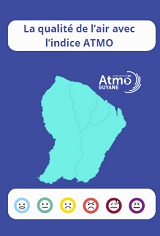Blada.com
mardi 03 février
Boîtes aux lettres
Courrier des lecteurs
Petites annonces
Emploi / Formation
Covoiturage
Infos citoyennes
Infos citoyennes
27/01/21
Comment s’organise la surveillance des variants en Guyane ?
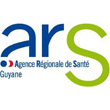 Chaque semaine, des échantillons ciblés sont envoyés à l’Institut Pasteur de Paris, pour être séquencés. Cela permettra de repérer l’apparition d’un éventuel variant au Sars-CoV-2 chez les personnes diagnostiquées positives, et en particulier de détecter précocement l’introduction du variant brésilien. Les onze premiers échantillons analysés ne sont pas des variants.
Chaque semaine, des échantillons ciblés sont envoyés à l’Institut Pasteur de Paris, pour être séquencés. Cela permettra de repérer l’apparition d’un éventuel variant au Sars-CoV-2 chez les personnes diagnostiquées positives, et en particulier de détecter précocement l’introduction du variant brésilien. Les onze premiers échantillons analysés ne sont pas des variants.
Hier en fin de matinée, quelques responsables de la lutte contre le Covid-19 en Guyane ont poussé un ouf de soulagement. Une heure plus tôt, l’annonce venait d’être faite de la découverte d’un premier patient atteint d’un des variants au Sars-CoV-2. Vérification faite, il s’agissait d’une fausse alerte. Pour l’heure, les onze premiers échantillons envoyés par la Guyane à l’Institut Pasteur de Paris pour séquençage ne sont pas des variants.
En Guyane aussi, la survenue d’éventuels variants parmi les cas confirmés de Covid-19 est surveillée attentivement. Les variants anglais et sud-africain, bien sûr, mais surtout les deux variants brésiliens (Manaus et Sao Paulo) de par la proximité géographique et les échanges entre la Guyane et son voisin. Les échantillons suspects font l’objet d’un séquençage par l’Institut Pasteur de Paris. Après les 11 premiers envoyés le 13 janvier, 37 autres l’ont été lundi. Le résultat est attendu dans les prochains jours. Les envois d’échantillons pour séquençage se poursuivront chaque semaine, au rythme de plusieurs dizaines.
Cette surveillance fait l’objet d’un plan, mis au point par l’Agence Régionale de Santé et l’Institut Pasteur de Guyane, avec les biologistes, les épidémiologistes et les infectiologues des laboratoires et établissement de santé du territoire. Des critères ont été établis pour décider quels échantillons positifs doivent être envoyés à Paris pour séquençage. Il s’agit :
- Des cas sévères (patient hospitalisé en réanimation par exemple) ;
- Des infections au Covid chez une personne immunodéprimée ;
- Des cas de réinfection ;
- Des clusters sévères ;
- Des personnes de retour de voyage depuis moins de deux semaines.
L’échantillonnage comprend également des prélèvements réalisés dans les centres délocalisés de prévention et de soins (CDPS) afin que tout le territoire soit surveillé. Ceux-ci effectuant des tests antigéniques, dont les prélèvements ne peuvent pas être séquencés, tout test positif est désormais confirmé par RT-PCR.
Les laboratoires ont été invités à retrouver tous les échantillons répondant à l’un de ses critères, que ce soit parmi les nouveaux tests réalisés mais aussi parmi ceux réalisés depuis la deuxième semaine de janvier. Ils sont confiés à l’Institut Pasteur de Guyane, qui les envoie ensuite à l’Institut Pasteur de Paris.
- Les tests antigéniques utilisés en Guyane sont sensibles aux variants
Tous les tests antigéniques utilisés en Guyane – que ce soit ceux reçus par l’ARS ou ceux vendus par les grossistes-répartiteurs aux pharmaciens – sont sensibles aux variants du Sars-CoV-2. Ces variants se distinguent par une modification de la protéine S. Les tests qui ciblent cette protéine reviennent donc faussement négatif. Les marques reçues par l’ARS et les grossistes-répartiteurs ciblent, elles, la protéine N. Pour ce qui est des tests RT-PCR, cela ne pose pas de difficulté puisqu’ils ont pour obligation d’avoir au moins deux cibles. En cas de doute, le site du gouvernement consacré aux tests précise lesquels sont autorisés et quelles protéines ils détectent.
Each week, targeted samples are sent to the Institut Pasteur in Paris for sequencing. This will allow the detection of the appearance of a possible Sars-CoV-2 variant in people diagnosed positive, and in particular the early detection of the introduction of the Brazilian variant. The first eleven samples analyzed are not variants.
Yesterday at the end of the morning, some officials responsible for the fight against Covid-19 in French Guiana heaved a sigh of relief. An hour earlier, the announcement had just been made of the discovery of a first patient with one of the Sars-CoV-2 variants. Verification done, this was a false alarm. For the time being, the first eleven samples sent by French Guiana to the Institut Pasteur in Paris for sequencing are not variants.
In French Guiana too, the occurrence of possible variants among confirmed cases of Covid-19 is being closely monitored. The English and South African variants, of course, but above all the two Brazilian variants (Manaus and Sao Paulo) due to the geographical proximity and exchanges between French Guiana and its neighbor. Suspicious samples are subject to sequencing by the Institut Pasteur in Paris. After the first 11 sent on January 13, 37 more were sent on Monday. The result is expected in the coming days. Shipments of samples for sequencing will continue every week, at a rate of several dozen.
This surveillance is the subject of a plan, developed by the Regional Health Agency and the Pasteur Institute of French Guiana, with biologists, epidemiologists and infectious disease specialists from the laboratories and health establishments in the area. Criteria have been established to decide which positive samples should be sent to Paris for sequencing. It's about :
- Severe cases (patient hospitalized in intensive care for example);
- Covid infections in an immunocompromised person;
- Cases of reinfection;
- Severe clusters;
- People who have returned from their trip for less than two weeks.
The sampling also includes samples taken in the delocalized prevention and care centers (CDPS) so that the entire territory is monitored. As these perform antigenic tests, the samples of which cannot be sequenced, any positive test is now confirmed by RT-PCR.
The laboratories were invited to find all the samples meeting one of its criteria, whether among the new tests carried out but also among those carried out since the second week of January. They are entrusted to the Institut Pasteur in French Guiana, which then sends them to the Institut Pasteur in Paris.
- The antigenic tests used in Guyana are sensitive to variants
All the antigen tests used in French Guiana - whether those received by ARS or those sold by wholesaler-distributors to pharmacists - are sensitive to Sars-CoV-2 variants. These variants are distinguished by a modification of the S protein. The tests which target this protein therefore come back falsely negative. The brands received by the ARS and the wholesaler-distributors target the N protein. As for the RT-PCR tests, this is not a problem since they are required to have at least two targets. When in doubt, the government test site specifies which ones are allowed and which proteins they detect.
Raccourcis


passer une petite annonce

passer une annonce de covoiturage


passer une annonce d’emploi


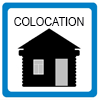
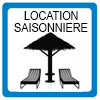

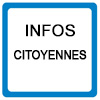
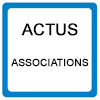
associations, postez vos actualités

participez au courrier des lecteurs
La Guyane c’est ici
La qualité de l’Air avec
ATMO
Photothèque

Lancements 2022
Vol 259 Ariane 5



